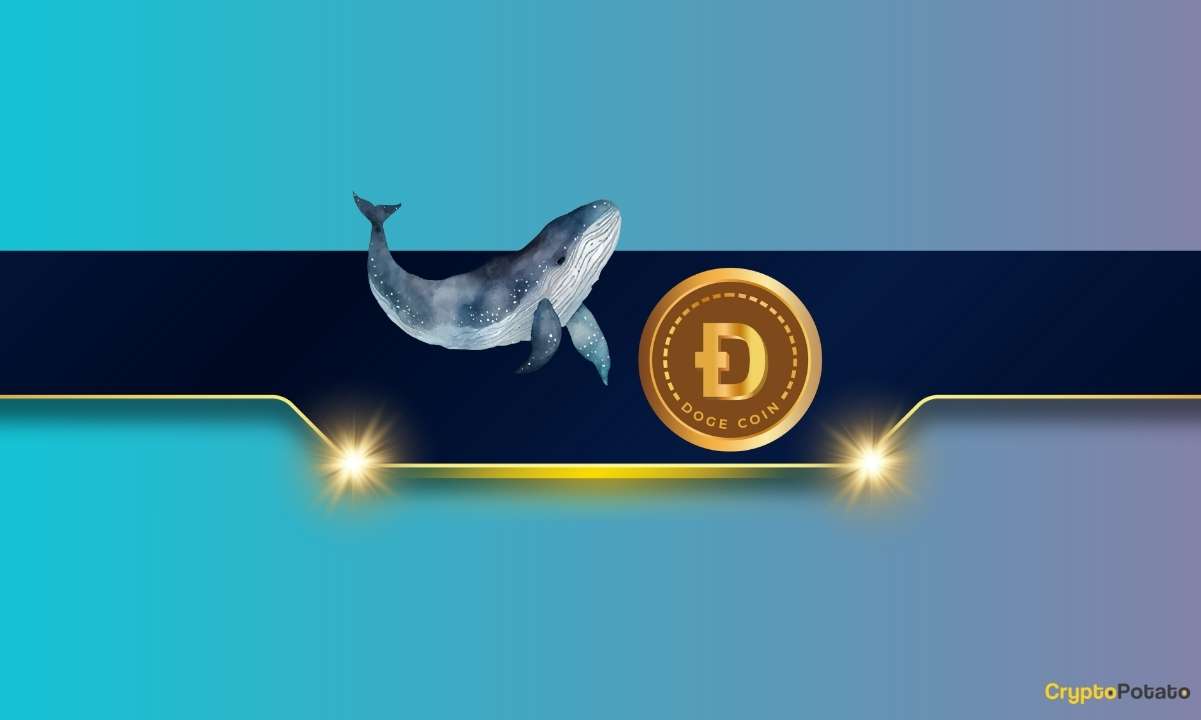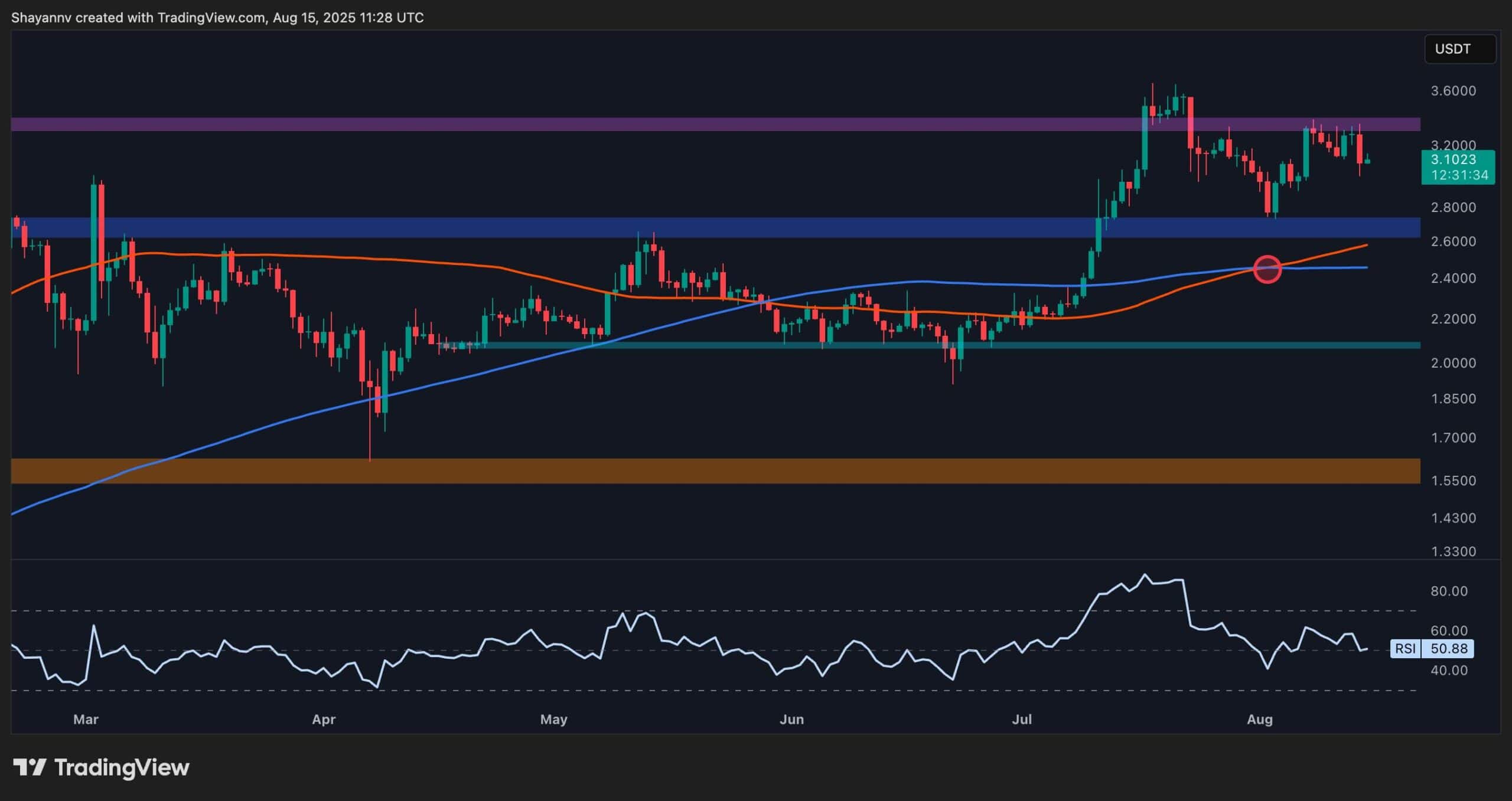Cryptocurrency
Bitcoin ETF vs Buying BTC Directly: What’s Better?

A spot Bitcoin exchange-traded fund (ETF) has been one of the hottest topics over the past few years. Many investment companies, both traditional and crypto-oriented, have been filing multiple applications with the United States Securities and Exchange Commission over and over again.
On January 10th, 2024, the SEC finally gave the go-ahead and greenlighted a total of 11 Bitcoin ETF applications.
It’s been a hard-fought battle spanning many years, and if you want to check out the full timeline of the events, take a look at our detailed article on the matter:
Timeline of Events Leading to Spot Bitcoin ETF Approval in the United States
With the approval already a fact, it’s now critical to explore a very important subject – the difference between buying a spot Bitcoin ETF and buying Bitcoin directly and what might be better for you.
Here’s a quick table of comparison between both, while the following article provides a more in-depth look.
What is a Spot Bitcoin ETF?
Exchange-traded funds have been a cornerstone in the world of traditional finance for many years.
In essence, an ETF represents a basket (or individual) of assets, and it trades on an exchange just like a regular stock does. It can track the price of various types of assets, including but not limited to securities, commodities, or other assets. It can track multiple assets or just one (as is the case with the spot Bitcoin ETF).
In the case of the Bitcoin ETFs, they provide a traditional and well-regarded investment vehicle to gain exposure to the price of BTC.
There is, however, a technical difference between the ETF itself and the asset that it tracks. Since the ETF itself is a standalone product – it has a market of its own and trades independently of the asset that underpins it. This is why there might be a difference between the ETF price and the net asset value (NAV) of the underpinning product.
There are other important takeaways that characterize the Bitcoin exchange-traded funds, so let’s have a look at a comprehensive summary.
Trades on traditional exchanges like the New York Stock Exchange
Because the ETF is a traditional investment product, it trades on regulated exchanges on Wall Street, such as the New York Stock Exchange. ETFs don’t trade on cryptocurrency exchanges like Binance.
Investors don’t own the underlying BTC
Owning an ETF doesn’t grant ownership to the underlying product. Think of it as a synthetic asset that’s built on top of BTC, and it tracks its price. Investors who buy the ETF don’t have to worry about storing and safekeeping BTC.
The shares in the ETF are backed by BTC, which is owned and stored by the ETF provider.
There are acquisition fees depending on the ETF provider
There are multiple Bitcoin ETFs, and each of them comes with different fees stipulated by the provider. In the case of BlackRock’s Bitcoin ETF (IBIT), there’s a sponsor fee of 0.25% (T&C apply).
Managed by the ETF provider
ETFs are managed by the companies that launch them. They can pull support if they don’t meet certain criteria and can also change the fees at their own volition.
Trades within traditional US trading hours
Because ETFs trade on traditional and regulated US exchanges like NYSE, they can only be accessed during regular US trading hours.
There might be an ETF/NAV price difference
There might be a price difference between the Bitcoin ETF and the price of Bitcoin on the same day. This is because ETFs trade on their separate markets, which dictate their current price.
Pros and Cons of a Bitcoin ETF
The above characteristics are specific to Bitcoin ETFs, and they bring certain advantages and disadvantages.
Pros:
- Regulated financial product
- It can be included in specialized portfolios like retirement or 401(k)
- Backed by regulated and reputable providers like BlackRock
Cons:
- Investors do not own the underlying BTC
- There might be a premium on the ETF compared to the BTC NAV
- Limited trading hours and higher fees
Buying BTC Directly
As opposed to ETFs, buying Bitcoin directly provides you with ownership over the BTC, regardless of whether you buy it from an exchange or P2P.
Of course, if you do buy it through an exchange such as Binance, you should consider self-custody. This means that you should take your BTC off the exchange and transfer it into a cold wallet such as Trezor or Ledger, where you control the private keys.
In crypto, there’s a popular saying that goes like this:
“Not your keys, not your Bitcoin.”
This also comes with certain responsibilities. Keeping your crypto safe can be a challenging task, especially if you have no prior experience. Worry not, however, as we’ve prepared a detailed guide on what you can do to make sure your BTC is safe.
9 Tips for Securing Your Bitcoin and Crypto Wallets You Must Follow
Just as it is with ETFs, buying Bitcoin directly has its specifics. Here’s a quick summary.
Trades on cryptocurrency exchanges
You can’t buy Bitcoin on the New York Stock Exchange. You have to use a cryptocurrency exchange. The most popular ones are Binance (outside of the US) and Coinbase (US).
Investors get direct ownership of BTC
Once you buy spot BTC on a cryptocurrency exchange – you own it. You can transfer it out of the exchange to a cold storage, or you can use it to trade against other altcoins such as Ethereum.
Acquisition fees vary between crypto exchanges
Unlike ETFs, there’s no Sponsor fee. There are, however, trading fees associated with buying and selling BTC, and they vary based on the cryptocurrency exchange of choice.
Managed by you
Since you have complete ownership over the BTC you bought, you are also responsible for its safety. Self-custody comes with certain challenges, and it’s imperative that you learn about cold storage and how to keep your crypto safe.
Trades 24/7, irrespective of traditional working hours
Cryptocurrency exchanges work around the clock, so there are no limitations in terms of trading hours or weekends.
Direct exposure to the BTC price
You don’t have to worry about differences in the price of the ETF and the net asset’s value. You’re as exposed to the BTC price as it’s physically possible.
Pros and Cons of Buying BTC Directly
Here are the advantages and disadvantages:
Pros:
- You get direct ownership of the BTC you buy
- You can get full control through self-custody
- Unlimited trading hours and lower fees
Cons:
- Storing your BTC can be challenging and requires higher technical expertise
- Can’t include it in traditional retirement plans and 401(k)
- Not recognized as a financial instrument
Bitcoin ETF vs. Buying BTC Directly: What’s Better?
The above comprises the most essential differences between a spot Bitcoin ETF and buying BTC directly.
There’s no one answer as to which is better, and it strongly depends on the individual preferences and needs of the investor.
For instance, if you’re not tech-savvy, not interested in trading BTC against other altcoins, want long-term exposure without having to worry about safekeeping your crypto, and don’t mind the higher fees, an ETF might be the better option.
However, if you are well-versed in the crypto field and prefer direct ownership of BTC because you want to either safely store it on your cold wallet or you want to trade it actively against other altcoins, then perhaps buying BTC directly is the way to go.
Binance Free $100 (Exclusive): Use this link to register and receive $100 free and 10% off fees on Binance Futures first month (terms).
Cryptocurrency
Ethereum Foundation, Whales, and Hackers: What’s Driving the ETH Sell-Off?

TL;DR
- Whales, hackers, and the Ethereum Foundation wallets moved over $500M in ETH through large sales and withdrawals.
- Ethereum transfers rose to 4.6M ETH, nearing the monthly high of 5.2M recorded in July.
- Staking inflows hit 247,900 ETH, the highest in a month, locking more supply from trading.
Large Withdrawals and Whale Activity
Ethereum (ETH) has seen heavy movement from major wallets over the past few days. On-chain data from Lookonchain shows a newly created wallet pulled 17,591 ETH, worth $81.62 million, from Kraken in just two hours.
Over three days, two new wallets withdrew a combined 71,025 ETH, valued at $330 million, from the exchange.
One of these wallets, address 0x2A92, has withdrawn 53,434 ETH, worth $242.34 million, in two days. This includes a recent purchase of 30,069 ETH, valued at $138.46 million, during a market drop.
Major ETH Holders Offload Millions Amid Price Rally
In contrast, several separate entities have been disposing of some ETH holdings. A wallet tied to a hacker address 0x17E0 sold 4,958 ETH for $22.13 million at $4,463, securing a profit of $9.75 million. Earlier this year, the same address sold 12,282 ETH at $1,932 and later bought back part of the amount at higher prices.
A different whale sold 20,600 ETH for $96.55 million over the past two days, generating a profit of more than $26 million after holding the position for nine months.
Meanwhile, an Ethereum Foundation-linked wallet, 0xF39d, sold 6,194 ETH worth $28.36 million in the last three days at an average price of $4,578.
Recent sales from the same wallet included an additional 1,100 ETH and 1,695 ETH for over $12.7 million combined.
The #EthereumFoundation-linked wallet(0xF39d) sold another 1,300 $ETH($5.87M) at $4,518 ~11 hours ago.
Over the past 3 days, this wallet has sold a total of 6,194 $ETH($28.36M) at an average price of $4,578.https://t.co/4hfCWymHVG pic.twitter.com/ErUyEY8SJy
— Lookonchain (@lookonchain) August 15, 2025
Network Activity on the Rise
CryptoQuant data shows Ethereum’s total tokens transferred have been climbing since August 9. After ranging between 1 million and 3 million ETH through late July and early August, transfers have risen to 4.6 million ETH, approaching the monthly high of 5.2 million recorded in mid-July. This increase has occurred alongside a price rally from about $3,400 to $4,600.
Interestingly, staking inflows generally stayed between 20,000 and 80,000 ETH per day over the past month. On August 14, inflows jumped to 247,900 ETH, the highest in the period.
At the time, ETH was trading near $4,600. Large staking deposits reduce the amount of ETH available for immediate trading, as staked coins are locked for a set period.
In the meantime, ETH trades at $4,647 with a 24-hour volume of $68.25 billion, down 2% on the day but up 19% over the week.
Binance Free $600 (CryptoPotato Exclusive): Use this link to register a new account and receive $600 exclusive welcome offer on Binance (full details).
LIMITED OFFER for CryptoPotato readers at Bybit: Use this link to register and open a $500 FREE position on any coin!
Cryptocurrency
Massive DOGE Whale Activity Hints at $1 Breakout

TL;DR
- Whales bought two billion DOGE this week, lifting their combined holdings to 27.6 billion coins.
- A single 900M DOGE transfer worth $208M to Binance drew attention to large exchange movements.
- DOGE broke key resistance, with momentum building for a possible push toward the $1 price mark.
Price and Market Moves
Dogecoin (DOGE) traded at $0.23 at press time, slipping 4% over the past day but still showing a 2% gain for the week. Daily turnover came in at about $6.18 billion.
Meanwhile, the broader crypto market saw over $1 billion in liquidations. Hotter-than-expected US Producer Price Index data pushed traders to scale back expectations of a near-term Federal Reserve rate cut. DOGE had roughly 290,500 coins liquidated during the sell-off.
On the two-week chart, analyst Trader Tardigrade notes that DOGE has cleared a downward-sloping resistance line after completing what appears to be a “wave V” in an Elliott Wave sequence. Similar setups in the past, where prolonged declines stayed within falling channels before breaking higher, have been followed by sharp rallies.
$Doge/2-week#Dogecoin is gaining strong momentum to surge above $1 pic.twitter.com/TuSEKr19nv
— Trader Tardigrade (@TATrader_Alan) August 15, 2025
Momentum gauges are also turning up. The Stochastic RSI, which had dropped into oversold territory, is now heading higher. Previous reversals from this zone have coincided with sustained upward moves. The current formation points to a possible run that could carry DOGE past the $1 mark.
Heavy Whale Buying and Large Transfers
As reported by CryptoPotato, blockchain data shows large investors have added two billion DOGE in the past week, spending just under $500 million. That brings their holdings to about 27.6 billion coins, or 18% of the supply. The buying streak has prompted speculation within the community.
Recently, Whale Alert flagged a 900 million DOGE transfer worth about $208 million into Binance. The tracking indicates that it originated from a wallet connected to the exchange, likely as an internal activity. The address involved holds 2.88 billion DOGE, one of the largest balances on the network.
Ali Martinez also reports that transactions above $1 million reached a one-month high, with activity building since early August and peaking as DOGE traded at $0.25.
Whales are back! Dogecoin $DOGE activity at a 1-month high. pic.twitter.com/C83Pv68mCt
— Ali (@ali_charts) August 14, 2025
Sentiment Building
Analyst Gordon described the current setup as “a nice bit of consolidation” before a potential breakout, adding,
“This will be one of the first coins normies FLOCK to & the pump will be MASSIVE.”
With whale accumulation rising, high-value transfers increasing, and a bullish technical pattern in play, DOGE is positioned for a potential push toward $1 if momentum holds.
Binance Free $600 (CryptoPotato Exclusive): Use this link to register a new account and receive $600 exclusive welcome offer on Binance (full details).
LIMITED OFFER for CryptoPotato readers at Bybit: Use this link to register and open a $500 FREE position on any coin!
Cryptocurrency
Ripple Price Analysis: XRP at Risk as Key Support Levels Could Trigger Sharp Drop

XRP has recently entered a consolidation phase after a strong rally earlier this summer, with the price action now hovering around key resistance levels on both its USDT and BTC pairs. Yet, while momentum has slowed, the charts still indicate a generally bullish structure, with multiple key support levels remaining firmly in place.
Technical Analysis
By ShayanMarkets
The USDT Pair
On the XRP/USDT daily chart, the price is currently trading near the $3.10 mark, facing a strong resistance zone around $3.40. This follows a breakout above the $2.70 range in July, which has now flipped into a support area.
Both the 100-day and 200-day moving averages are also trending upward and recently formed a bullish crossover around $2.45, reinforcing the medium-term bullish sentiment. If the $3.40 resistance breaks, a push toward the critical $4.00 range becomes likely.
However, the RSI hovering near the neutral 50 level suggests a lack of strong momentum for now, meaning a short-term pullback into the $2.80 support zone is still possible.
This zone will be key for maintaining the bullish structure. Losing it could open the door for a deeper correction toward the 200-day moving average located around the $2.40 mark. Yet, as long as the price stays above the moving averages, the broader trend remains bullish.
The BTC Pair
Looking at the XRP/BTC chart, the pair has recently pulled back after hitting the 3,000 SAT resistance, with the price currently around 2,600 SAT.
This follows a clean breakout above the long-term descending channel and a successful retest of its upper boundary, which coincided with the 200-day moving average and the 2,400 SAT support zone. This confluence remains a key bullish technical factor, as holding above it could attract renewed buying pressure.
That said, RSI levels around 48 show that momentum has cooled after the sharp July rally, meaning XRP may continue ranging between 2,400 SAT and 3,000 SAT in the near term. A decisive close above 3,000 SAT would likely open the path to the 3,400 SAT zone, while losing 2,400 SAT could shift the bias back toward 2,000 SAT support. For now, the structure still favors the bulls as long as higher lows remain intact.
Binance Free $600 (CryptoPotato Exclusive): Use this link to register a new account and receive $600 exclusive welcome offer on Binance (full details).
LIMITED OFFER for CryptoPotato readers at Bybit: Use this link to register and open a $500 FREE position on any coin!
Disclaimer: Information found on CryptoPotato is those of writers quoted. It does not represent the opinions of CryptoPotato on whether to buy, sell, or hold any investments. You are advised to conduct your own research before making any investment decisions. Use provided information at your own risk. See Disclaimer for more information.
Cryptocurrency charts by TradingView.

 Forex3 years ago
Forex3 years agoForex Today: the dollar is gaining strength amid gloomy sentiment at the start of the Fed’s week

 Forex3 years ago
Forex3 years agoUnbiased review of Pocket Option broker

 Forex3 years ago
Forex3 years agoDollar to pound sterling exchange rate today: Pound plummeted to its lowest since 1985

 Forex3 years ago
Forex3 years agoHow is the Australian dollar doing today?

 Cryptocurrency3 years ago
Cryptocurrency3 years agoWhat happened in the crypto market – current events today

 World3 years ago
World3 years agoWhy are modern video games an art form?

 Commodities3 years ago
Commodities3 years agoCopper continues to fall in price on expectations of lower demand in China

 Economy3 years ago
Economy3 years agoCrude oil tankers double in price due to EU anti-Russian sanctions





















